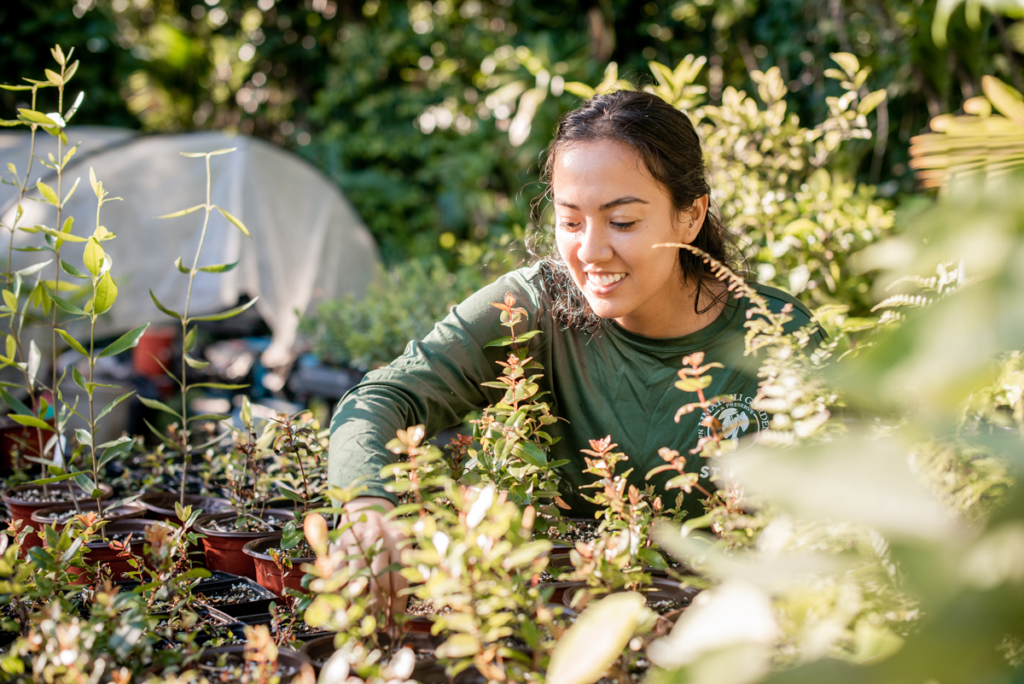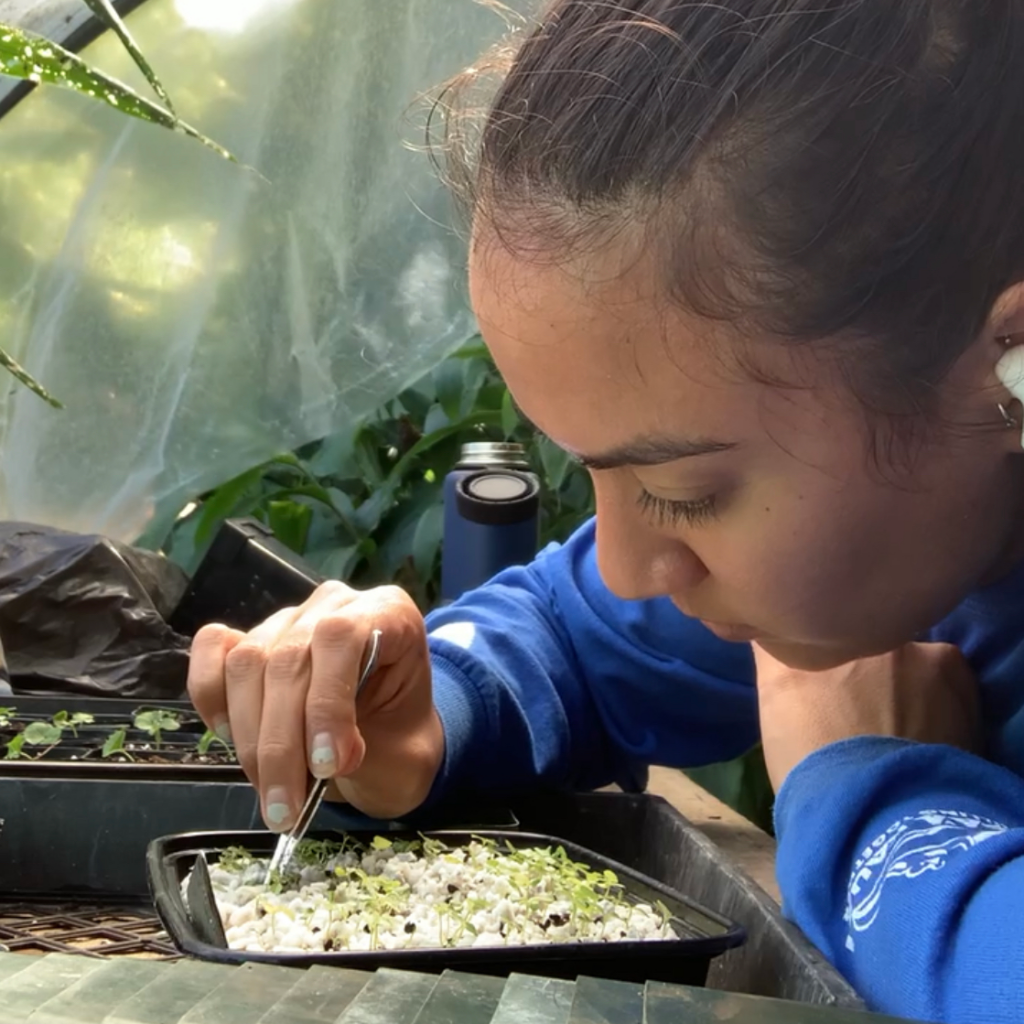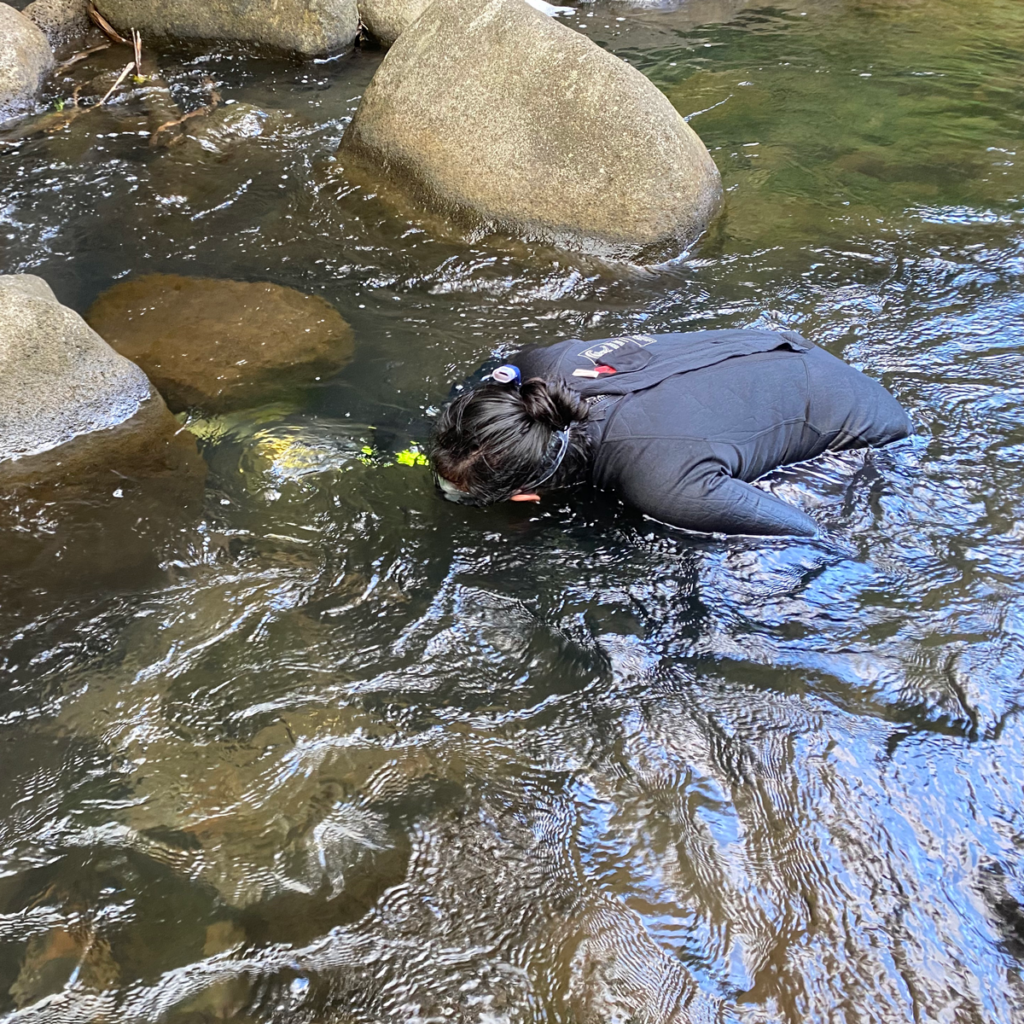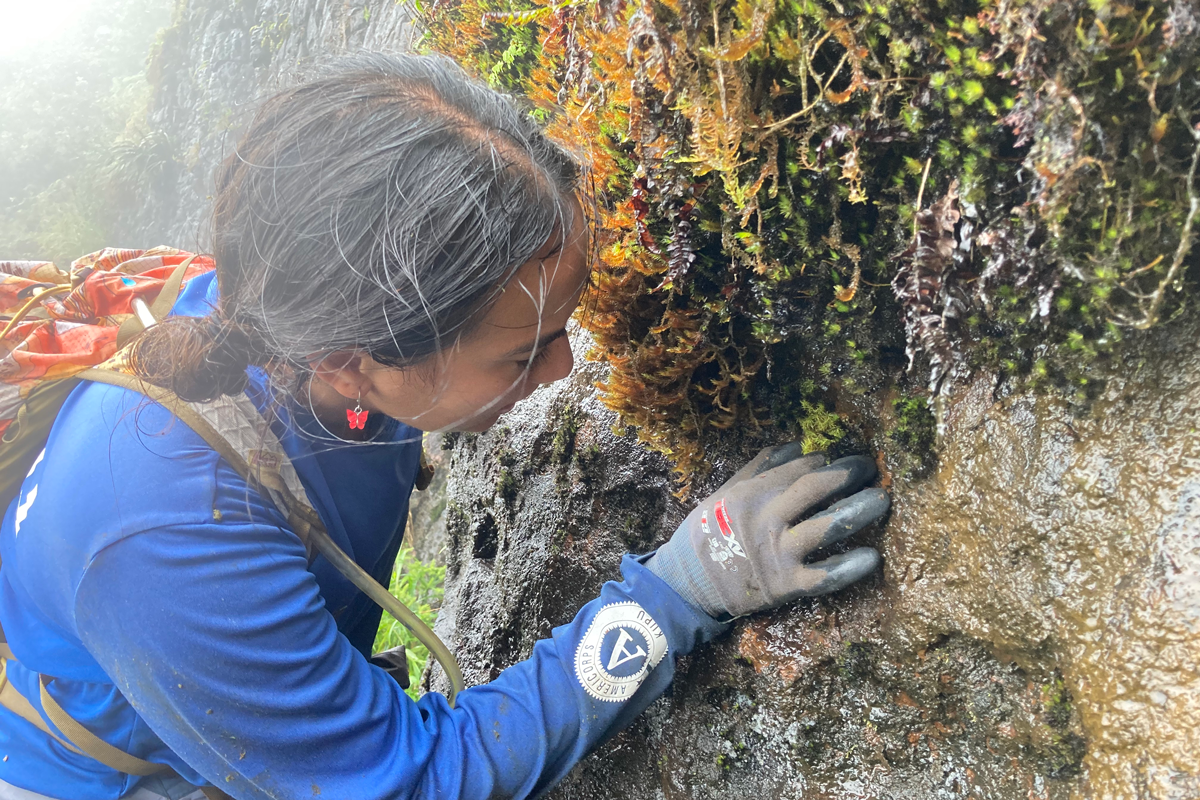Over half a century, NTBG has hosted hundreds of interns that have become leaders in plant-based careers. In this series, get to know a few of our former and current interns who are forging their paths in tropical plant science and conservation and creating brighter futures for generations of plants and people.
By Jon Letman, Editor
Growing up in California’s Inland Empire, Kassie Jensen was surrounded by citrus orchards. As a student, her interest in animal science led to learning about agriculture and eventually serving as a Peace Corps volunteer in West Africa. When the pandemic cut that endeavor short, a friend told her about Kupu, AmericCorps’ Hawaiʻi-specific conservation leadership development program.
With a growing interest in plants and tropical conservation, Kassie applied to be a Kupu member doing conservation and ecology work at Limahuli Garden and Preserve. Arriving at Limahuli in 2020, she says, was a “lucky coincidence.”
Although she originally planned to do only one eleven-month stint, she realized that Limahuli was where she wanted to be and what she wanted to be doing. After nearly two years working in Limahuli’s upper and lower preserve as a conservation technician, Kassie is preparing to start graduate school at the University of Hawaiʻi in the fall. Kassie talks about her involvement with NTBG below.
What were you doing when you started with NTBG at Limahuli?
I worked four days a week in the lower preserve and one day in the garden. We removed non-native plants and planted natives from NTBG’s south shore nursery. I also did stream surveys— counting oʻopu fish—and other restoration work.

Are you still doing stream restoration?
We aren’t counting fish anymore, but we are doing riparian restoration.
What was it like working inside Limahuli Stream?
I thought it was really fun. It was challenging at first—the stream was really cold and half the time it was raining—but my teacher, Puakea, was really great.
What is something meaningful that you learned as a Kupu member?
Working in the Lower Limahuli Preserve taught me about dedication to the work and kuleana (responsibility), and the strong work ethic of everyone here because this is the work we want to do—helping the community.


Did this experience change your relationship with plants?
In the Upper Limahuli Preserve, I became really enthusiastic about mosses. Once we did an all-day moss lesson. I am from a really dry desert-like area where we don’t have these beautiful, flamboyant mosses.
How did your interest in mosses begin?
One of my first days hiking around I saw this beautiful moss and said, “what is that?” It just spiraled from there. I am actually going to start graduate school in the fall at the University of Hawaiʻi to research mosses. I didn’t have any experience with moss before and now it’s my specialty and my life. I realized this is what I want to be doing and this is where I want to be. I am working as a research assistant for school through a lab doing research at Limahuli so I will be able to keep coming back.

Do you feel this internship has influenced your future academic plans?
Absolutely. Under the guidance of NTBG staff like Dr. Uma Nagendra who recognized that I was interested in mosses and said, “we should pursue this.” She had me start one project which led to another. That led to the publication of a checklist of the mosses of the lower Limahuli Preserve which has been accepted into Hawaiʻi biological surveys through Bishop Museum.
Did specific NTBG help guide you?
Yes, I consider the curator of the herbarium Tim Flynn and Uma as my mentors.
What is the value of supporting internships like the one you did?
We need people to be doing this work. We have to get people interested. Unfortunately, a lot of people don’t have the choice. Of course, it’s valuable because we really need to do this work if we want the island to remain this way. If we want to get people interested, they have to be supported financially.
Plants nourish our ecosystems and communities in countless ways. When we care for plants, they continue caring for us. Help us grow a brighter tomorrow for tropical plants.